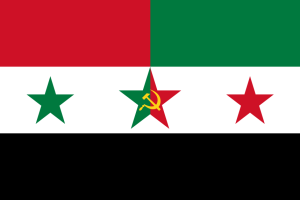
Update August 2020: This article was originally published in 2016. New updates include: 13 new organizations, changes to party stances, and additional sources listed. Some of the parties I originally listed have disappeared or dissolved; I’m still listing them, but have noted their defunct status. Some of the changes can be credited to people who took the time to comment on the article.
You’ll note that for some groups I’ve listed sources published throughout the war, while other groups have sources only from the early years. In the latter case, I have determined that the party in question has not changed its original stance significantly. Please also note that due to the prominent role of the United States in the creation of the Syrian Democratic Forces (SDF), many leftist groups who support the YPG are reluctant to mention the SDF. This is why in the “Stance on Syria” sections I primarily refer to the YPG rather than the broader SDF.
As always, feedback and corrections are welcome.
This is a survey of various left-wing and far left groups around the world regarding their stances on the Syrian civil war. I have searched the websites of just over 60 parties, networks, and international tendencies to the left of democratic socialism for any articles, blurbs, statements, etc. regarding Syria since 2011. You’ll notice that I tend to focus on American leftist groups, with which I have the most familiarity. Also note that some of the international organizations overlap with each other.
I have found that leftists have incredibly diverse attitudes toward Syria, even within ideological tendencies. All the groups profiled below support secularism and socialism (or, in the case of some anarchists, socialist-like systems) and oppose intervention by Western powers, but their attitudes towards the Assad regime, the Kurdish PYD/YPG-led Rojava, the vast and multi-colored opposition, and the so-called Islamic State vary greatly.
The organizations are grouped by ideology. A couple of notes regarding ideological nuances:
- I use “Leninists” to refer to communists who are pro-Lenin but neither pro-Stalin nor pro-Trotsky. “Leninists” usually call themselves Marxist-Leninists, but that same label is also used by those who support Stalin (“anti-revisionists”), so I find use of the term “Marxist-Leninist” problematic.
- “Stalinists” seldomly use this term to describe themselves; as said above, they prefer “Marxist-Leninist”. Nevertheless, I call them “Stalinists” to distinguish them from Maoists, who branched off into their own ideology, and Hoxhaists, who support Stalinism as specifically applied under Albania’s communist leader Enver Hoxha.
- Trotskyists are somewhat notorious for splitting and quarreling with each other over relatively small things. You’ll see that I’ve split the multitude of Trotskyist groups into three tendencies: “post-Pablo”, “anti-Pablo”, and “other”. This refers to the most prominent split in the Trotskyist movement: in 1953, the Fourth International (the original Trotskyist political international) split over the policies of its leader Michel Pablo. Many of the groups that split away, including the Socialist Workers Party in the US, eventually rejoined in 1963 after Pablo had become marginalized and expelled from the FI; the resulting “re-unified” Fourth International is sometimes known as the United Secretariat of the Fourth International, or USFI. I refer to Trotskyists who support this reconciliation as “post-Pablo”. Some of the dissidents continued to see the FI as “Pabloite”; I refer to these as “anti-Pablo” (often they will refer to themselves as “orthodox Trotskyists”). Although there is very little ideological substance to the current divide between post-Pablo and anti-Pablo, relations between the two tendencies are often hostile, so I find it helpful to retain the distinction. The third major Trotskyist tendency is the Third Camp, which had split from the mainstream Trotskyist movement in 1940, having become dissatisfied with the latter’s allegedly too-sympathetic view of the USSR under Stalin. Third Camp Trotskyists, as well as mainstream Trotskyists who do not fall into either category regarding the Pablo split, are grouped under “other Trotskyists”.
Leninists
V. I. Lenin expanded on the work of Marx and Engels, arguing that an elite vanguard party would be needed to lead the working class to overthrow the capitalist order and establish a socialist dictatorship of the proletariat in order to lead to the achievement of communism. The vanguard party was to be organized along democratic centralist lines: debate within the party was encouraged, but once a majority decision had been reached, party members were expected to comply. This highly centralized mode of organization was opposed by the Mensheviks, the rivals of Lenin’s Bolsheviks. Both the Bolsheviks and Mensheviks held that Russia, as a relatively underdeveloped country, would need to undergo a bourgeois democratic revolution before a socialist revolution could succeed. But whereas the Mensheviks were relatively supportive of the provisional government that came to power in the February Revolution of 1917, the Bolsheviks called for the overthrow of this government and the immediate transition to socialist rule. In the October Revolution later that year, the Bolsheviks seized power and spent the next few years consolidating their rule during the chaotic Russian civil war.
- Communist Party USA (CPUSA)

Stance on Syria: supported initial protests; later supported government’s reforms in 2012. Now critically supportive of government. Supports negotiations. Sources:
http://www.cpusa.org/article/communist-party-says-hands-off-syria/ (2012)
http://www.cpusa.org/article/eleventh-hour-to-prevent-catastrophe-in-syria/ (2013)
Background information: founded in 1919. The “official” (e.g., pro-Moscow) American communist party during the Cold War. After the fall of the Soviet Union, it has promoted a softer, more liberal democratic-friendly version of communism while still maintaining its official Leninist doctrine and structure – similar to the Western European Eurocommunist movements of the 70s and 80s. Although this trend has made it the target of much criticism from traditional, hardline communists, it retains links with the “official” communist parties of the world as a participant in the International Meeting of Communist and Workers Parties, which is listed further down. This more “democratic” trend was blunted somewhat when former chairman Sam Webb defected to the Democratic Party in 2016.
- Socialist Workers Party (SWP)
Stance on Syria: supports opposition and YPG, but opposes HTS. Says original protests were led by working class; attributes failure to lack of working class leadership, harsh government response, and capitalist/Islamist opportunism. Sources:
http://www.themilitant.com/2016/8008/800802.html (2016)
http://www.themilitant.com/2016/8019/801906.html (2016)
http://themilitant.com/2020/05/16/opponents-of-assad-in-syria-protest-islamist-rule-in-idlib/ (2016)
Background information: formed in 1938. Originally the major Trotskyist party in the US, it drifted away from Trotskyism in the 80s towards a more Cuba-friendly Leninist position. It leads an informal international grouping of pro-Cuban ex-Trotskyists called the Pathfinder tendency. It remains one of the largest far left parties in the US.
- Workers World Party (WWP)

Stance on Syria: supports government. Supports “bourgeois nationalist” governments against imperialism. Calls Syria “sole remaining independent secular state in the Arab world”, praises its support of Hamas and Hezbollah. Calls Syria-Iran relationship “strategic progressive alliance.” Says US fomented rebellion to serve own interests, exaggerated harsh government response, exaggerated support for opposition. Sees Assad as accommodating, able to protect Kurds. “By all accounts, the major rebel forces are all sectarian reactionaries — ISIS and Al Nusra being the largest organizations.” “The Russian strategy to support and add to the military strength of the Syrian government and its armed forces is a realistic strategy that can defeat ISIS and the other jihadi groups.” Sources:
http://www.workers.org/2011/world/syria_0519/ (2011)
https://www.workers.org/2019/10/44136/ (2019)
Background information: split from the SWP in 1958-1959 under the leadership of Sam Marcy. Marcy had supported the controversial 1956 Warsaw Pact invasion of Hungary and admired many aspects of Mao’s China. The WWP maintains a positive – though not completely uncritical – attitude towards all Communist regimes, from the USSR under Stalin to the USSR under Khruschev, from China under Mao to China under Deng Xiaoping, to Vietnam, Cuba, and North Korea. It had loose links with the now-defunct International Communist Seminar, which is listed further down.

Stance on Syria: supports government. Acknowledges mass scale of 2011 protests, but implies there were just as many calls for sectarian Islamism as for democratic reforms. Supports government’s reforms in 2011-2012. Very supportive of Russia’s military intervention and efforts at negotiation. Says US intervention is the main source of chaos. “The dominant ideology of the various rebel groups in Syria is that of reactionary sectarian Islamists, the two main poles being the Islamic State and the Nusra Front.” “Under the current balance of forces in Syria, it is obvious that the only real alternative to ISIS and Al Qaeda is the Syrian state in Damascus.” “If the U.S. priority were to fight ISIS, it would throw its support behind Syria’s government, by far the most significant force fighting against ISIS on the ground.” Sources:
https://www.liberationnews.org/u-s-role-in-syrias-civil-war/ (2015)
https://www.liberationnews.org/u-s-special-ops-forces-to-fight-against-isis-or-damascus/ (2016)
https://www.liberationnews.org/russia-enters-syria-war-exposing-hypocrisy-contradictions-u-s-policy/ (2015)
Background Information: split from the Workers World Party in 2004 for reasons that are still unclear. Like the WWP, it is largely supportive of the various communist regimes of past and present. Along with the Socialist Workers Party, it is one of the more visible far left groups in the US, regularly running candidates for election. Like the WWP, it also maintained loose links with the International Communist Seminar.

Stance on Syria: – supported initial protests, but now only supports YPG. Says Assad is brutal, but that opposition is fractious and dominated by sectarian Islamists. Supportive of PKK/PYD ideology, though somewhat critical of practices. Sources:
http://freedomroad.org/2013/09/the-war-drive-against-syria-has-been-stalled-lets-stop-it-cold/ (2013)
http://freedomroad.org/2014/05/the-revolution-in-rojava/ (2014)
Background information: Formed in 1999 as a split in the Freedom Road Socialist Organization (see Maoist section). Both factions continued using the FRSO name until 2019, when this faction adopted its current name. It has largely abandoned the Maoism of the original FRSO, arguing that a more open-minded Leninist approach (e.g., less focused on fighting revisionism) was necessary. Black Liberation and self-determination for other “oppressed nations” continue to play a prominent role in both factions’ platforms.
- Workers Party, USA (WPUSA)

Stance on Syria: supports government. Says “US-vetted militia” began operating in 2011. “U.S.-sponsored ‘dissident organizations’ devoted to overthrowing the constitutional government of Syria have been launching attacks on Syrian security forces since March [2011].” “The Syrian foreign ministry continues to demand that all States guilty of supporting terrorism inside of Syria withdraw their support immediately. So too, the people of Syria continue to organize demonstrations and other mass actions to demand the liberation of the areas occupied by the insurgents.” “In Syria the struggle against foreign aggression and interference is uniting the overwhelming majority of people.” Opposed Geneva talks as “imposed” on Syria by US. Sources:
http://www.workersparty.org/pentagon-refuses-to-cut-and-run-from-syria_11-2-15.htm (2015)
http://www.workersparty.org/geneva-talks-an-attack-on-edifice-of-intl-law_1-9-14.htm (2014)
http://www.workersparty.org/syria-u.s.-imperialism-hands-off_12-19-11.htm (2011)
Background information: an ex-Hoxhaist party formed in 1992. Opposition to alleged American imperialism and defense of alleged US targets (e.g., North Korea) are its most prominent themes.

Stance on Syria: vaguely supports government. “Regarding Syria it should be clear by now that ‘ISIS’ has been funded and set in motion by the U.S., and that U.S., British and French special forces have been on the ground in Syria from the beginning.” Sources:
http://rallycomrades.lrna.org/2014/11/implications-war-syria-iraq/ (2014)
Background information: formed in 1993, though its roots lie in a 1958 anti-revisionist split from the Communist Party USA. Its predecessor organizations were Maoist and Black Liberationist.

Stance on Syria: supports opposition. Stresses positive role of democratic revolutions even if they are not socialist. “One excuse given for non-support [of the rebels] is that the Syrian fighters accepted weapons from the US and were somehow pawns of the CIA. But an oppressed people has a right to get its weapons from anywhere.” Opposes idea of transitional government, calls for full overthrow of Assad. Says Russia and Assad don’t distinguish between legitimate opposition and jihadis. Accuses Gulf monarchies of funding fundamentalism at expense of democracy advocates; accuses US of ignoring Assad and only focusing on IS. Criticizes PYD for authoritarianism and seeking accommodation with Assad. Sources:
http://strugglemagazine.net/Str27-1&2.htm (2011)
http://www.communistvoice.org/CV50.pdf (2016)
http://www.communistvoice.org/DWV-160705.html (2016)
http://www.communistvoice.org/DWV-141028.html (2014)
http://www.communistvoice.org/DSWV-191226.html (2019)
Background information: founded in 1995 from remnants of the Marxist-Leninist Party, USA, which was Hoxhaist. CVO describes itself as “anti-revisionist”, but unlike the actual anti-revisionist movement, it considers Stalinism and its ideological descendants – Maoism and Hoxhaism – as revisionist as well as Trotskyism. Instead, it advocates a “return to Lenin”.

Stance on Syria: supports government. Supports international negotiations. Sources:
http://www.usmlo.org/arch2013/2013-10/VR131008.htm#05 (2013)
http://www.usmlo.org/arch2012/2012-06/VR120626.htm#02 (2012)
http://www.usmlo.org/arch2012/2012-02/VR120210.htm#04 (2012)
Background information: split in 1981 from the Marxist-Leninist Party, USA (see Communist Voice Organization above) after the MLP-USA broke with the Communist Party of Canada (Marxist-Leninist). The USMLO remains closely linked to the CPC-ML, which abandoned Hoxhaism in the late 80s in favor of a more Cuba- and North Korea-friendly stance.
Hoxhaists and Stalinists
Joseph Stalin took over from Lenin during a long intra-party struggle in the 1920s and put forth the idea of socialism in one country, the idea that socialism could be achieved in the USSR despite the failure of other communist revolutions around the world. He was most infamous, of course, for his extremely brutal suppression of dissent and extensive cult of personality. When Nikita Khrushchev secured control of the USSR in 1953 following Stalin’s death, he repudiated what he saw as Stalin’s excesses, leading those who supported Stalin to deem Khruschev “revisionist”. Mao’s China and Hoxha’s Albania led the subsequent anti-revisionist movement but split during the 70s over Mao’s alleged deviations from Stalin’s policies and the increasing détente between China and the US. Hoxhaist ideology is hard to distinguish from to Stalinism; as said above, the difference is that Hoxhaists support Stalinism as specifically applied in Hoxha’s Albania.
- International Conference of Marxist-Leninist Parties and Organizations (Unity & Struggle) (ICMLPO-US)

Stance on Syria: supported initial opposition, but now only supports YPG. “The popular movement of protest has been transformed into a destructive civil war. The bloodthirsty repression is striking the people, and since the beginning, the Assad regime has rejected any democratic reform that would satisfy the aspirations of the Syrian people. This situation is the consequence of the foreign reactionary, imperialist and Zionist intervention, through Turkey, Qatar and Saudi Arabia…” “…there is a battle and polarization between the imperialists and reactionaries in the region on one hand, and the power and actions of the Kurds on the other hand. The Kurdish nation… has progressed towards cementing its identity, to place itself as the alternative of self-determination despite the pressure of the imperialists and their reactionary allies.” Sources:
http://cipoml.net/en/?p=42 (2014)
Background information: a Hoxhaist international founded in 1994; it is referred to with the name of its publication in parentheses to distinguish it from the Maoist international of the exact same name which publishes International Newsletter (see below). Leading parties include the Marxist-Leninist Communist Party of Ecuador, the Workers’ Party in Tunisia, and the Labour Party/Revolutionary Communist Party of Turkey. The American Party of Labor is the observer US section of the ICMLPO-US.
- Party of Communists USA (PCUSA)
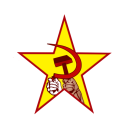
Stance on Syria supports government. “There is no civil war in Syria, inherently a stable, secular society and republic, not divided ethnically or religiously. The war there is one of indirect aggression on the part of the US since 2011 through brutally barbaric foreign mercenary terrorists, not Syrian rebels, from over 80 countries, ostensibly seeking to impose a theocratic autocracy but serving as a purely invented rationale for intended US-Saudi-Turkish partition of Syria.” Sources:
Background information: split from the Communist Party USA in 2016, though it had existed as an internal faction since 2011. It believes that CPUSA lost its revolutionary character after World War II, when it allegedly began to advocate for the peaceful coexistence of capitalism and socialism. Devoted to the defense of the USSR under Stalin, though like the Workers World Party and the Party for Socialism and Liberation, it defends all other communist states as well. Although it has informal links with other hardline and anti-revisionist communist parties around the world, it has failed to replace CPUSA as the American section of the International Meeting of Communist and Workers Parties.
- Progressive Labor Party (PLP)
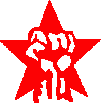
Stance on Syria: neutral. Rejects all sides as imperialist and/or reactionary. “[The Syrian Communist Party] offer[s] little criticism of Assad’s anti-worker, neoliberal economic policies, or of the corruption and cruelty of a regime that has impoverished millions of Syrians.” “None of the leading rebel forces represent the working class in Syria.” Sources:
http://www.plp.org/challenge/2016/3/25/syria-key-to-russian-imperialism.html (2016)
http://www.plp.org/challenge/2014/1/31/syria-centuries-of-repression-division-and- exploitation.html (2014)
http://www.plp.org/challenge/2013/7/18/syria-lose-lose-lose-for-workers.html (2013)
Background information: founded as a Maoist split from CPUSA in 1962. It controlled nearly half of the well-known Vietnam-era Students for a Democratic Society activist group. It moved away from Maoism in 1971 and could now be considered Stalinist, though as noted in my introduction, they would dispute this label. Not affiliated with any international tendencies, but they claim to have several supporters across the globe.

Stance on Syria: originally supported YPG; now neutral, though focused on opposition the rebels. Says US used threat of IS to continue intervention in Iraq and launch one in Syria. “While, in our view, Assad is a reactionary misleader of the Syrian working class and masses, his political future should be in their hands.” “What’s happening in Syria today has been going on for over five years and is not a civil war. The conflict began as a US funded and supported effort to depose President Bashar Assad and install a puppet government in Damascus friendly to US interests. I am sure there are some legitimate forces in Syria who oppose the government of Assad, but the US does not care about democracy: after all Assad was elected by his people.” Sources:
http://www.cindysheehanssoapbox.com/8/post/2015/03/support-the-kurdish-women-in-fighters-against-isis-and-oppose-imperialist-war.html (2015) (note: dead link; the only version available on Internet Archive quickly redirect to spam sites)
http://rayolightnewsletter.blogspot.com/2016/11/
http://rayolightnewsletter.blogspot.com/2017/04/revolutionary-organization-of-laborusa.html
Background information: split from the CPUSA in 1961. Formerly known as the Ray O. Light Group. A very small group with little online presence. Traditionally it has been considered Maoist, and it participates in the International Conference of Marxist-Leninist Parties and Organizations (International Newsletter), a Maoist international, but it is also critical of many key aspects of Maoism, particularly the Cultural Revolution. It is also a member of the International Coordination of Revolutionary Parties and Organizations and was a regular attendant of the now-defunct International Communist Seminar (the ICMLPO-IN, ICOR, and ICS are all listed further down).
Maoists
Mao Zedong further developed Stalinism. Whereas most Marxists up to that point focused on the industrial proletariat, Mao focused on the peasantry. He emphasized rural guerrilla warfare and anti-imperialism in “Third World” countries. He also encouraged a “Cultural Revolution” to rid China of treacherous “capitalist-roaders”, “feudal” cultural practices, and other vestiges of capitalism and imperialism. This tumultuous period of Chinese history lasted from 1966 to 1976. Shortly afterward, Deng Xiaoping secured power and instituted a number of reforms, including reducing much of the cult of personality around the now-dead Mao, allowing (limited) criticism of the party, and opening the country to market reforms and privatization. Deng called his reforms “socialism with Chinese characteristics.” The ideology of the Chinese Communist Party today is still officially referred to as “Mao Zedong Thought”, but “Maoists” today view the Chinese regime as revisionist.
- International Conference of Marxist-Leninist Parties and Organizations (International Newsletter) (ICMLPO-IN)

Stance on Syria: supports YPG. Says 2011 protests began legitimately, but were hijacked. Criticizes both Syrian Communist Parties for supporting the “oppressive” Assad government; criticizes the German Communist Party for defending Russia’s role in the 2018 Turkish-led invasion of Afrin. Sources:
https://www.mlpd.de/2013/kw44/rojava-2013-brennpunkt-im-kampf-fuer-freiheit-und-demokratie (2013)
https://www.mlpd.de/2016/kw09/die-tuerkei-muss-ihre-vorwuerfe-gegen-rojava-zuruecknehmen (2016)
https://www.mlpd.de/2018/kw06/dkp-rechtfertigt-russisches-vorgehen-in-efrin (2018)
Background information: a Maoist international formed in 1989; it is referred to with the name of its publication to distinguish it from the Hoxhaist international of the exact same name which publishes Unity & Struggle. Its last conference was in 2011; it seems to have been absorbed into the International Coordination of Revolutionary Parties and Organizations (see further down), although the ICMLPO-IN is still mentioned occasionally in joint statements with the ICOR. Leading section is the Marxist-Leninist Party of Germany. American section is the Revolutionary Organization of Labor (see above).
- Revolutionary Communist Party, USA (RCPUSA)

Stance on Syria: neutral. Says US is chiefly responsible for Syrian bloodbath. “It is an unfortunate fact that among the forces ‘in the field’ in Syria, none of them represent the interests of the people—including the regime and its allies and the motley collection of jihadists and more pro-U.S. forces.” Criticizes PYD/YPG for being tool of the US. Sources:
http://revcom.us/a/265/background-US-Syria-en.html (2012)
http://revcom.us/a/261/awtwns_syria-021312-en.html (2012)
http://revcom.us/a/316/more-lies-for-war-from-the-liar-in-chief-en.html (2013)
http://www.revcom.us/a/444/syria-needs-a-real-revolution-en.html (2016)
https://revcom.us/a/617/cpi-ml-the-military-offensive-of-turkeys-fascistic-army-en.html (2019)
Background information: formed in 1975. The main Maoist party in the US. Led by the charismatic Bob Avakian, it controlled the other half of the Students for a Democratic Society and battled bitterly with the Progressive Labor Party for control. It was a member of the now-defunct Revolutionary Internationalist Movement. The RIM advanced a specific type of Maoism called Marxism-Leninism-Maoism, which placed special emphasis on guerrilla-style “protracted people’s wars” and included such infamous militant groups as the Communist Party of the Philippines, the Communist Party of Peru (“Shining Path”), and the Communist Party of Nepal (Maoist).
- Freedom Road Socialist Organization (Maoist faction) (FRSO-M)

Stance on Syria: supports government. “Syria plays a positive role in the Middle East. Its people and government are supportive of the struggle to free Palestine and assist the patriotic forces in Lebanon. Syria opposes Zionism and imperialism. The point here is not that the government of Syria is perfect or without fault. The point is this: It would be a sad setback for the collective efforts of the Arab peoples to achieve national liberation if Syria was pushed into a civil war, or delivered into the hands of those who have sold their soul’s to Washington and the West.” “One can debate the nature of the demonstrations against the Syrian government several years ago and what led up to them, but today, right now, the opposition is bought, paid for, and acting on behalf of the U.S. and the most reactionary of Arab regimes.” Sources:
http://frso.org/about/statements/2011/syria2011.htm (2011)
http://frso.org/about/statements/2013/frso_iso_syria.htm (2013)
Background information: formed in 1985 as a merger of several American Maoist groups. Black Liberation played a prominent role in its platform. The FRSO split in 1999 over a proposed change of direction (see Liberation Road in the Leninists section). This faction continued the original FRSO’s anti-revisionist, Maoist line. It was affiliated to now-defunct International Communist Seminar (see further down) and is arguably the most pro-North Korean of any US party.
Trotskyists
Leon Trotsky was Stalin’s chief rival to succeed Lenin. Trotsky criticized Stalin’s bureaucracy as well as the concept of socialism in one country, instead arguing that the only way for socialism to succeed in Russia was if other revolutions occurred around the world at the same time; otherwise, the world’s capitalist forces would overwhelm the isolated Russia and reverse the revolution. Trotsky defined Stalin’s USSR as a “degenerated workers’ state” – that is, a state which had originally been truly socialist but had degraded over time through the lack of world revolution and the poisonous Stalinist bureaucracy, though it was still better than a capitalist state. Workers owned the means of production, but not political power. Trotsky was assassinated in 1940, and when Soviet satellite states began popping up in Eastern Europe following World War II, his followers called these satellites “deformed workers’ states”: similar to degenerated workers’ state, but unlike the USSR, they had been stunted from birth. See the introduction for details on the major splits within Trotskyism.
Post-Pablo

Stance on Syria: supports opposition, critically supports YPG. Linked to the Revolutionary Left Current, a Syrian multi-tendency group which operated a tiny militia called the People’s Liberation Faction from 2014-2015. Asserts that opposition is still democratic. Criticizes indiscriminate shelling by rebels. “Despite the various truces the Assad regime and its allies have indeed continued military offensives in various parts of the country. This is actually the main reason why the ‘peace’ negotiations are stalled.” Critical of PKK and PYD. “The survival of Rojava against attacks from Islamic State is undoubtedly a victory for the left. The Kurdish movement deserves concrete solidarity in its struggle for self-determination, the more so because in Rojava people are trying to construct a progressive alternative.” “However, it was the uprising against the Syrian state that gave the Kurdish movement the chance to form Rojava as the Assad regime decided to focus on fighting the rebels.” “While this achievement was unimaginable without the Syrian revolution, the PYD never extended solidarity to the revolution, preferring to consolidate their own one-party state.” Sources:
http://internationalviewpoint.org/spip.php?article4449 (2016)
http://internationalviewpoint.org/spip.php?article4492 (2016)
http://internationalviewpoint.org/spip.php?article6375 (2020)
Background information: the result of the reunification of the original Fourth International in 1963. Calls itself simply the Fourth International, but it’s often called the United Secretariat of the Fourth International (referring to the name of the leadership council from 1963-2003) to distinguish it from other claimants of the “Fourth International” name.

Stance on Syria: originally supported uprising, but now critically supports government. Said in 2012 that “the economic exploitation of Syria’s workers and peasants by its ruling class, a class subservient to global capital, and the horrific oppression and murderous policies of the Syrian regime to enforce that exploitation, mean that we stand with the Syrian masses in their uprising against the regime.” Later says US took advantage of Assad’s brutality to try to set up new regime. “… in the absence of anything resembling a revolutionary leadership, the democratic and popular thrust of the anti-Assad mobilizations rapidly dissipated.” Alleges US and Gulf monarchies support IS. Critical of Assad, but says “the removal of Assad’s oppressive capitalist Syrian regime is the sole responsibility of the Syrian people, not U.S. imperialism and its reactionary allied forces.” “Syria’s right to self-determination necessarily includes the right of the Syrian government to seek and accept the support of the militia fighters that are today defending Syria against imperialist intervention in several of its manifestations.” Socialist Action sees Russia as a counterbalance to US imperialism; although in 2018 it adopted the position that Russia too is imperialist, it still maintains a positive view of the Russian intervention. It criticizes the YPG for accepting US aid. Sources:
http://socialistaction.blogspot.com/2012/02/us-hands-off-syria-victory-to-uprising_25.html (2012)
https://socialistaction.org/2016/01/18/u-s-imperialisms-syria-policy/ (2016)
https://socialistaction.org/2018/02/17/u-s-seeks-syria-partition/ (2018)
https://socialistaction.org/2019/01/07/trumps-syria-exit-provokes-washington-panic/ (2019)
https://socialistaction.org/2019/10/22/anatomy-of-the-recent-split-in-socialist-action/ (2019)
https://socialistaction.org/2020/06/16/deadly-new-sanctions-on-syria/ (2020)
Background information: split from the Socialist Workers Party in 1983 as the SWP abandoned Trotskyism. One of the four major US Trotskyist parties today. It is affiliated with the Tendency for a Revolutionary International, a minority faction within the USFI.

Stance on Syria: critically supports opposition; says radical Islamists have dominated armed rebellion since late 2013, but that the original grassroots opposition continues. Acknowledges reforms made by the PYD/YPG but criticizes them for failing to fight Assad and for allying themselves with capitalist powers. Sources:
https://socialistresurgence.org/2020/03/19/conflict-in-syria-moves-into-its-tenth-year/ (2020)
Background information: split from Socialist Action in 2019, mainly over disputes regarding the Syrian civil war and the nature of the Chinese and Russian governments. Both groups are part of the Tendency for a Revolutionary International, despite their differences. Socialist Resurgence is also part of the Revolutionary Socialist Network (see International Socialist Organization further down).
- Labor Standard (defunct)

Stance on Syria: supported opposition. Defended opposition as revolutionary, “mass popular uprising”. “… the main aim of direct U.S. intervention in Syria is to prevent the grassroots popular movement from coming to power.” Sources:
http://www.laborstandard.org/syria_in_eye_of_storm.html (2013)
http://www.laborstandard.org/syria_index.html (2013)
Background information: founded in 1988 as the publication of the Fourth Internationalist Tendency, which had been expelled from the Socialist Workers Party in 1983 during that party’s turn away from Trotskyism and towards “Castroism”. The FIT dissolved in the mid-1990s and became part of the “Fourth International Caucus” within Solidarity (see further down). The FIC was the official US section of the USFI, and Labor Standard served as its unofficial newspaper. Labor Standard disappeared sometime around 2018-2019; it is unclear whether the FIC still exists.
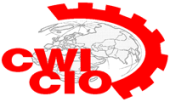
Stance on Syria: originally sympathetic to the opposition, but now critically supports YPG. “If initially there was a popular uprising, by the end of 2011 it had transformed itself into an armed conflict along sectarian lines.” “The role of Marxists is to support the creation of independent organizations of the working class and poor, their self-control and defence, fight against Assad’s brutal dictatorship, but without having any illusions in the bourgeois and imperialist military or in the jihadists, who have nothing to offer to the working class, except more death and misery.” Critical of PKK/PYD ideology and of PYD’s ambiguous relationship with regime and support from the West – says they’re trying to balance between two brutal capitalist powers. Highly critical of Russian intervention and motivations behind it. Sources:
http://www.socialistworld.net/doc/7384 (2015)
http://www.socialistworld.net/doc/7295 (2015)
http://www.socialistworld.net/doc/7316 (2015)
http://www.socialistworld.net/doc/6579 (2013)
Background information: another major Trotskyist international. Strong emphasis on the role of trade unions. Historically, it pursued the tactic of entryism (joining a larger party in the hopes of swaying that party to your position), but that was abandoned in 1991-1992. The CWI experienced a major split in 2019, which saw a majority of its affiliates leave to form the International Socialist Alternative (see below). Leading party is the Socialist Party in England and Wales. American section is the Independent Socialist Group.

Stance on Syria: essentially shares the perspective of the CWI (see above). Critically supports YPG; praises its progressive reforms and defends it against jihadis and Turkish intervention, but criticzes its alliance with the US. Also critical of the YPG-led Raqqa offensive, saying it exacerbated ethnic tensions. Sympathetic to the opposition at the beginning of the war. Sources:
https://internationalsocialist.net/en/2019/10/rojava-2 (2019)
https://internationalsocialist.net/en/2019/10/rojava (2019)
Background information: split from the Committee for a Workers’ International in 2019. A year prior, a dispute arose over several issues, mainly tacitcal/strategic. In general, a minority of members, gathered in the CWI’s International Secretariat, felt that certain CWI sections had been too bold in engaging with the wider labor and social justice movements and feared that the organization would lose its distinct identity and platform. A majority, gathered in the larger International Executive Committee, disagreed. Over the next few months the IEC accused the IS of bureaucratically enforcing its opinion and of backing out of a scheduled reconciliation conference. The split formalized in mid-2019, and the majority faction adopted its current name in February 2020. Leading sections include the Socialist Party in Ireland and the US-based Socialist Alternative, one of the four major American Trotskyist parties.

Stance on Syria: supports YPG/SDF. Sees original 2011 protests as legitimate and characterizes Assad a brutal capitalist dictator with backing from imperialist Russia. Alleges Assad intentionally radicalized the opposition to legitimize himself. On the other hand, the IRL characterizes the armed rebellion as jihadist and blames the West, the Gulf, and Turkey for most of the carnage. Says YPG are only effective anti-IS force and praises their progressive accomplishments. Very critical of internationally-sponsored peace negotiations. Sources:
Background information: split from the CWI in 2019, shortly before the larger split that produced the International Socialist Alternative. Most of the Spanish CWI section and a few other European and Latin American parties took the minority position, but they soon developed differences with the minority leadership in Britain (mainly over the consequences of the collapse of the pro-Soviet states in Eastern Europe and the characterization of the situation in Venezuela). The Spanish section and its allies left the CWI and eventually formed the IRL. Leading section is Revolutionary Left (Spain). No American section.
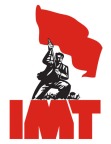
Stance on Syria: supported initial protests, but now critically supports YPG. Attributes failure of protests to regime violence and weak, unorganized state of working class. Praises PYD/YPG’s accomplishments and calls for their defense against Turkey and rebels, but criticizes them for accommodating bourgeoisie powers, including Iran in addition to the US. Says a deal between the SDF and the Assad government would be tantamount to surrendering the Kurds’ freedom. Sources:
http://www.marxist.com/syria-which-stage-is-the-war-at.htm (2016)
https://www.marxist.com/turkey-attacks-northern-syria.htm (2019)
https://www.marxist.com/down-with-the-turkish-war-of-aggression-against-rojava.htm (2019)
Background information: split from the CWI in 1992 after upholding the tactic of entryism. Formerly known as the Committee for a Marxist International. It has an informal Syrian affiliate known as the Marxist Alternative Current – Syria. Leading party is Socialist Appeal in the UK. US section is Socialist Revolution.
Stance on Syria: supported opposition in the first years of the war, but now neutral. Still very critical of the government. Mostly reposts other parties’ articles on Syria. Sources:
http://www.socialistviewpoint.org/marapr_12/marapr_12_32.html (2012)
http://www.socialistviewpoint.org/marapr_12/marapr_12_31.html (2011)
http://www.socialistviewpoint.org/sepoct_13/sepoct_13_08.html (2013)
http://www.socialistviewpoint.org/sepoct_12/sepoct_12_03.html (2012)
http://www.socialistviewpoint.org/mayjun_17/mayjun_17_06.html (2017)
http://www.socialistviewpoint.org/mayjun_18/mayjun_18_25.html (2018)
Background information: split from Socialist Action in 1999-2001. Like the Socialist Workers Party, it views Cuba very positively. Also known as Socialist Viewpoint after their magazine.
Stance on Syria: originally critically supportive of opposition and YPG; in recent years, now solely supportive of YPG. Critical of political solutions that would retain Assad. Opposes government offensive on Idlib. Sources:
http://www.socialism.com/drupal-6.8/node/2557 (2013)
https://socialism.com/fs-article/in-kurdish-rojava-syrias-imperiled-freedom-fighters/ (2019)
https://socialism.com/fs-article/imperialist-rivalry-fans-flames-of-war-and-genocide-in-syria/ (2019)
Background information: a small international established sometime in the early 2010s by the US-based Freedom Socialist Party. The FSP split from the Socialist Workers Party in 1964 over a number of differences. It places a special emphasis on radical feminism and is one of the four major Trotskyist parties in the US.

Stance on Syria: neutral. Supports Kurdish self-determination, but criticizes YPG and the larger “Kurdish nationalist movement” for relying on the US. Blames the current state of the war on Turkey and its support for Islamist and jihadists. Refers to the government’s defeat of rebels in Damascus, Aleppo, and Daraa as “liberation”. Opposes the involvement of all foreign powers, including the US, Turkey, and Russia.
https://lis-isl.org/en/2019/12/29/suriye-idlibistanda-sona-dogru-v-u-arslan/ (2019)
https://lis-isl.org/en/2020/12/01/karayilan-ne-anlatiyor-v-u-arslan/ (2020)
https://lis-isl.org/en/2020/12/27/10-yil-sonra-arap-bahari-perspektifleri-v-u-arslan/ (2020)
https://lis-isl.org/en/2021/02/26/biden-bombardea-siria/ (2021)
https://lis-isl.org/en/2021/12/10/1/ (2021)
Background information: formed in May 2019 by Trotskyist groups from several backgrounds. Leading parties are the Socialist Workers Movement in Argentina, Socialist Tide in Venezuela, Socialist Laborers Party in Turkey, and Socialism and Liberty in Spain. American section is known simply as “ISL US”.

Stance on Syria: supports opposition, critically supports YPG. Opposed to internationally-sponsored negotiations. Notes PYD/YPG’s accomplishments but calls it petit-bourgeois. “There is no way out to this impasse the Arabic [sic] country is in, as long as Assad remains in power. And the only way to defeat him is supporting the groups affiliated to the Free Syrian Army, who hold a democratic, independent position; the ones who have not sold, directly or indirectly, to the different forces acting in the conflict, followed by the interest on how to increase their own influence around the region. We must provide weapons to the rebels fighting against the regime and against the self-denominated Islamist groups, with no previous conditioning.” Sources:
http://www.socialistworld.net/doc/6579 (2013)
http://litci.org/en/category/world/middle-east/syria/ (various articles)
https://litci.org/en/rojava-syrian-kurdistan-part-1-an-atypical-bourgeois-state/ (2017)
https://litci.org/en/soleimani-in-syria-a-legacy-of-death-and-devastation/ (2020)
Background information: split from the United Secretariat of the Fourth International in 1980-1982 under the leadership of Nahuel Moreno; it condemned what it saw as the USFI’s uncritical support of the Sandinista administration in Nicaragua. Leading party is the United Socialist Workers Party in Brazil. American section is Workers’ Voice.

Stance on Syria: critically supports opposition. Called the short-lived September 2016 Russian-American-sponsored truce a sham. Condemned Trump’s 2018 missile strikes. Criticizes opposition for alienating Kurds, but criticizes PYD/YPG for refusing to attack Assad and asking him for help Sources:
Background information: formed in 1995, partially as a split from the International Workers League – Fourth International. Leading party is the Socialist Left in Argentina. American section is Socialist Core.

Stance on Syria: supported initial protests, but now neutral. “… Assad’s regime is neither progressive nor anti-imperialist: it is a despotic dictatorship that has, for decades, been implementing neoliberal policies… The Syrian people rose up against these conditions. However, militarization stifled the popular uprising and gave rise to a civil war, in which imperialist countries and regional powers, like Turkey, Saudi Arabia, Qatar, and the Gulf States, that support the Sunni militias, in order to further their reactionary interests, are intervening, through the different factions in struggle.” “The aim [of US support to the rebels] was to let both sides wear themselves out and then attempt a negotiated solution between Assad’s regime and the opposition, with support from Russia.” Sources:
http://www.ft-ci.org/No-to-imperialist-intervention-in-Syria?lang=en (2013)
Background information: split from the International Workers League – Fourth International in 1993. Formerly known as the Trotskyist Fraction – International Strategy. Leading party is the Socialist Workers’ Party in Argentina. American section is Left Voice.
Anti-Pablo
Stance on Syria: unclear stance on government, but opposes rebels. Characterizes war as “CIA-backed regime change operation” in pursuit of US political-economic goals. “From the outset, the US proxy war for regime-change was launched with the aim of depriving Moscow and Tehran of their principal ally in the Arab world in preparation for direct confrontation with both countries.” Sources:
http://www.wsws.org/en/articles/2013/09/19/lect-s19.html (2013)
http://www.wsws.org/en/articles/2016/06/24/pers-j24.html (2016)
http://www.wsws.org/en/articles/2016/03/28/syri-m28.html (2016)
http://www.wsws.org/en/articles/2016/03/18/pers-m18.html (2016)
Background information: split from the original Fourth International in 1953 (see introduction). Leading party is the Socialist Equality Party in the US, one of the country’s major Trotskyist parties, which emerged from a 1964 split from the Socialist Workers Party after the SWP joined the re-unified FI.
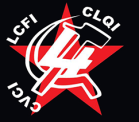
Stance on Syria: critically supports government, regards Russian intervention as “progressive”. Calls PYD/YPG “anarcho-Stalinists” and criticize them for authoritarianism, but offers them critical support for them in their struggle against IS and the rebels. “The liberation of Aleppo from the clutches of the reactionary opposition and the subsequent stream of victories of the Syrian Arab Army and its allies forced the US government to put its tail between its legs and temporarily accept the reality on the ground: the defeat of its proxy armies and, along with them, the defeat of an important part of its strategy on Syria and the Middle East.” “Morally Assad, Gadhafi and Saddam were no better than imperialism, although their crimes were but a tiny fraction of the crimes of imperialism. US-dominated global imperialism is still the main, central enemy of all humanity.” “Therefore, support for Afghanistan, Iraq, Libya and Syria necessarily means support for the rulers of these lands against imperialism when and in so far as they fight imperialism. It does contradict those who say you must make a political and uncritical defence of these rulers and their politics.” “Whereas the Assad regime, for all its brutal autocracy, incorporates Alawite Shia and Christian elements of the population, and has large scale support from secularised Sunnis in preference to the Al Nusra/Al Qaeda Western funded insurgents, as well as the remnants of Islamic State. Assad, and his Russian backers are therefore clearly the lesser evil, and worthy of defence in this civil war against western proxies as well as of course in the face of outright imperialist attack.” Sources:
https://socialistfight.com/2018/08/11/statement-on-war-with-syria/ (2018)
https://socialistfight.com/2018/04/14/defend-syria-and-russia-imperialism-out-of-the-middle-east/ (2018)
Background information: emerged from a complex serious of splits in the UK-based Workers Revolutionary Party of Gerry Healy and Cliff Slaughter, which had earlier split from the International Committee of the Fourth International. Originally known as the International Trotskyist Committee. Leading section is Socialist Fight in the UK. American section is the Socialist Workers League.

Stance on Syria: supports YPG. “We have supported the uprising of the poor and dispossessed of Syria and will side with the revolution against the Assad regime in the future as well. But the war that is being prepared now has nothing in common with either the progressive goals or the forces of that insurrection.” Sources:
http://www.eek.gr/index.php/englishtext/1858-statement-by-the-crfi-hands-off-syria-andt-it-s-people (2013)
Background information: a minor Trotskyist international formed in 2004. It holds many positions in common with the International Committee of the Fourth International, from which most of its members split, but it also places great emphasis on building bridges with other Trotskyist and even non-Trotskyist tendencies, to the point where it invited the United Communist Party (a small Stalinist party in Russia) to its 2018 conference. In recent years the CRFI has been wracked by infighting, particularly between its leading section, the Workers’ Party in Argentina, and the Workers Revolutionary Party in Greece. In 2019 the Workers Party itself experienced a bitter factional struggle, leaving the future of the CRFI in question. The American section was Refoundation and Revolution, a faction within the multi-tendency group Solidarity (listed further down), though R&R appears defunct.
Stance on Syria: unclear. Opposes opposition. Blames NATO and Gulf monarchies for war. Sources:
https://www.socialistorganizer.org/images/TheOrganizer/TheOrganizerApril2016.pdf (2016)
Background information: a Trotskyist international founded in 1993. Also known as the Organizing Committee for the Re-constitution of the Fourth International. The last in a series of internationals formed around the leadership of French Trotskyist Pierre Lambert. Leading party is the International Communist Current in France, which operates as part of the Independent Workers’ Party. American section is Socialist Organizer.
![]()
Stance on Syria: neutral. Views YPG as US puppet, IS as anti-imperialist. “The setting up of the SDF was prepared by a year of joint operations in which the YPG served as proxies for the U.S. military. During that time, as Kurdish forces overran ISIS-controlled villages, they repeatedly carried out communalist expulsions, driving Arabs and Turkmen from their homes.” “We have no side in Syria’s squalid civil war between the butcher Assad and various rebel forces dominated by different kinds of Islamists. But we do have a side against the U.S. and other imperialist powers. Thus, while implacable opponents of everything the reactionary cutthroats of ISIS stand for, we take a military side with ISIS when it aims its fire against the imperialist armed forces and their proxies in the region, including the Kurdish nationalist forces in Iraq and Syria. At the same time, while our main opposition is to the imperialists, we also oppose the other capitalist powers, such as Russia and Turkey, involved in Syria and are for all of them to get out.” Sources:
http://www.icl-fi.org/english/wv/1091/syria.html (2016)
Background information: split from the International Committee of the Fourth International in 1966. Formerly known as the International Spartacist Tendency. Leading party is the Spartacist League in the US, which had split from the Socialist Workers Party in 1964 after the SWP joined the re-unified FI.

Stance on Syria: neutral. “In Syria’s civil war, revolutionaries do not support either the brutal Baathist dictatorship or its reactionary Islamist opponents. At the same time, it is necessary to side militarily with any indigenous forces (including Islamists) when they are attacked by the U.S. and other imperialists.” Sources:
http://www.bolshevik.org/statements/ibt_20160212_middle_east_chaos.html (2016)
Background information: split from the International Communist League – Fourth International in 1982, accusing the Spartacist League’s leader James Robertson of ruthlessly harassing anyone who posed a threat to his leadership. In 2018 the IBT experienced a major split (see Bolshevik Tendency below) and the then-minority faction gained control of the organization. Leading section is the Permanent Revolution Group in New Zealand. No American section.
![]()
Stance on Syria: neutral. Says government is capitalist dictatorship and calls for its overthrow, but only by revolutionary working class and would support government if West invaded. Says FSA serve interests of bourgeoisie and imperialists. Says the PYD is not a bourgeois party and has fought bourgeois interests at times, but criticizes it for allying with bourgeoisie and imperialists at other times and for maintaining capitalist property. Castigates the Spartacists (see ICL-FI) for siding with IS during the battle of Kobane. Sources:
http://regroupment.org/main/page_syria__portugus.html (2012)
https://rr4i.milharal.org/2016/01/19/syrian-civil-war-the-islamic-state-and-the-battle-of-kobani/ (2016)
Background information: split from the International Bolshevik Tendency in 2008, accusing its leaders of the same abuse of power that led the IBT to split from the ICL-FI. Based primarily in Brazil. It is in liason with the Australian publication Bolshevik-Leninist.
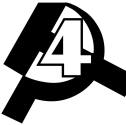
Stance on Syria: critically supports government. Characterizes rebels as US-sponsored jihadis, endorses Russian intervention in support of Syrian government. Sources:
https://bolsheviktendency.org/2020/02/18/correcting-a-serious-misrepresentation/ (2020)
https://bolsheviktendency.org/2020/02/03/the-struggle-for-the-middle-east/ (2020)
Background information: split from the International Bolshevik Tendency in 2018, partly due to a long-running debate on whether or not to call Putin’s Russia imperialist. The majority, most of whom were from the IBT’s North American section, held that Russia was not imperialist. However, in another debate on the 2013 Egyptian coup and the 2016 Turkish coup attempt, this same faction held a minority position (that it was wrong to stand with the Morsi and Erdoğan regimes against the coup forces). In October 2018 this faction left the IBT and reverted to calling themselves the Bolshevik Tendency (the original name of the North American section).

Stance on Syria: neutral. “… any blows against imperialist intervention and domination, even by ultra-reactionary forces such as the I.S., [are] in the interests of the working class and oppressed peoples of the world.” Does not consider Russia imperialist. Sources:
http://www.internationalist.org/defendraqqadriveoutimperialists1605.html (2016)
http://www.internationalist.org/flashpointsyria1510.html (2015)
Background information: a minor Trotskyist international formed in 1998. Leading party is the Internationalist Group in the US, which had split from the Spartacist League in 1996. The L4I sees the Spartacists’ ICL-FI as insufficiently devoted to three central principles: maintaining an active and distinctly Trotskyist international, remaining active in the labor movement, and defending the Soviet Union and its satellite states as the lesser evils in the face of capitalism.

Stance on Syria: neutral. Supported initial protests. Attributes failure of protests to regime brutality, dependence of minorities on Assad. Criticizes opposition as fractious, and sectarian and/or pro-imperialist. Calls SDF “Kurdish nationalists”. Sources:
https://www.union-communiste.org/en/2019-10/the-chaos-of-war-in-syria-imperialism-is-to-blame-5529 (2019)
https://the-spark.net/np1099405.html (2020)
Background information: An international grouped around the Lutte Ouvrière in France. Places special emphasis on union activity. American section is The Spark, which was formed in 1971 a few years after its members split from the Spartacist League for developing sympathies with the Lutte Ouvrière.
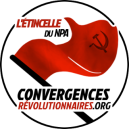
Stance on Syria: neutral. Very opposed to Assad’s “brutal dictatorship”, but also dismisses the rebels as either “mercenaries” or “jihadists”. Calls PYD/YPG narrow-minded Kurdish nationalists, criticizes them for authoritarianism and alliances with imperialists. Sources:
https://www.convergencesrevolutionnaires.org/La-Turquie-en-guerre-contre-les-Kurdes-de-Syrie (2018)
Background information: a small French group that had existed as a minority tendency within Lutte Ouvrière until its expulsion in 2008. It works within the multi-tendency New Anticapitalist Party, a tactic the LO opposed. “L’ètincelle” means “the spark”; I’m using the French name in this entry to avoid confusion with the US-based The Spark. L’Étincelle operates an international network with no name as of yet; the American section is Speak Out Now/Revolutionary Workers Group.
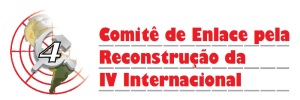
Stance on Syria: neutral. Supported initial protests; attributes their failure to the absense of a revolutionary Trotskyist party and the government’s harsh crackdown. Blames war on foreign intervention, especially that of the United States. Skeptical of claims that the Assad government has used chemical weapons. “Syria has been dismembered according to interventionist forces. At some point, the government of the Assad family and the oligarchy that supports it will give way to another war-born bourgeois government. Fundamentally, economic backwardness, ethnic-tribal divisions will remain and imperialism will maintain its dominance.” Sources:
http://www.masas.nu/cerci%20portugues/bi%2023%20-abr%202017.pdf (2017)
Background information: a small Trotskyist international in South America. Leading parties are the Revolutionary Workers’ Party in Bolivia, which in the 1940s and 50s played a major role in the Bolivian labor movement and was one of the world’s largest Trotskyist parties, and the party of the same name in Brazil.
Other Trotskyists

Stance on Syria: supports opposition. “The Syrian Revolution is in a tragic situation. It is attacked on all sides – by the forces of the Assad regime and its regional and international allies, by the open allies of Western imperialism, and by sectarian jihadi groups. Despite their antagonisms, these different forces have a common interest in crushing the original democratic revolutionary movement, which united Syrians of all religious and ethnic backgrounds in the struggle to overthrow the regime.” Sources:
Background information: a Third Camp Trotskyist international formed over a long period of time between the 60s and 90s. Its (now deceased) leader, Tony Cliff, championed the theory that the Stalinist states were not deformed or degenerated workers states, but rather “state capitalist”, or capitalist economies controlled by state bureaucracies with socialist trappings. Leading party is the Socialist Workers Party in the UK (not to be confused with the SWP in the US). American section is Marx21.
- International Socialist Organization (ISO) (defunct)

Stance on Syria: supported opposition. Very critical of Iran and Russia. Opposed to US-Russian-backed negotiations. Critical of YPG cooperation with government. “Overwhelmingly, these people [those killed in the war] have been slaughtered by the Assad-Iran-Russia Triple Alliance.” “True, Saudi Arabia has funded jihadis, among other militias, but the Saudis and the U.S. are only the number-three culprit in creating the Syrian disaster. Assad is clearly number one, and his allies are number two.” Sources:
https://socialistworker.org/2016/03/01/the-lefts-false-logic-on-syria (2016)
https://socialistworker.org/2016/03/31/how-did-syria-become-a-burning-country (2016)
Background information: formed in 1977. Until its demise it was one of the five major Trotskyist parties in the US. It was a member of the International Socialist Tendency until 2001, when it was expelled over disagreements on how to view the end of the Cold War. The organization collapsed in 2019 after a scandal surrounding the leadership’s handling of a sexual abuse claim. Some of its members went on to create the Revolutionary Socialist Network, a broad Trotskyist alliance that also includes Workers’ Voice (US section of the IWL-FI) and Socialist Resurgence (listed earlier).

Stance on Syria: supports opposition, critically supports YPG. Disapproves of YPG’s cooperation with government and the US. “Certainly, the choice between an IS caliphate or a restored totalitarian Baathist dictatorship is a choice between the plague and cholera.” “The fact that, despite four and a half years of struggle, Syrian revolutionaries are still fighting Bashar al-Assad is as much a testament to their resolve, and to their popular support, as it is to the utter absence of any forces assisting them for much of that time.” “…it was legitimate, indeed unavoidable, for the PYD to exploit the imperialist rivalries in the fight against ISIS for its own benefit. However, the policy of the PYD went far beyond that, making it the ally of US imperialism’s reactionary group of forces. This could only have been prevented if the PYD had pursued an internationalist course of active collaboration with the democratic forces of the Syrian Revolution and the Arab Spring, with the resistance in Turkey, Iraq or even Palestine… However, the PYD actually followed the policy of ‘noninterference’. They hoped to build a quasi-state reform project – a ‘municipality’ based on a market economy and commodity production – by keeping Rojava as far as possible from the Syrian civil war and all other major upheavals. This concept had to fail, at the latest with the defeat and degeneration of the Syrian revolution and the victory of Assad and Russian imperialism.” Sources:
http://www.workerspower.co.uk/2015/08/revolution-and-counter-revolution-in-syria/ (2015)
https://www.redflagonline.org/stop-turkey-invasion-victory-kurds/ (2019)
https://fifthinternational.org/content/syria-erdogan-putin-deal-against-rojava (2019)
Background information: a Trotskyist international formed in 1984. It argues that the original Fourth International broke with true Trotskyism in 1951 when it declared that the Stalinist parties in Eastern Europe were still capable of being reformed. Leading party is the Red Flag Platform (formerly known as Workers’ Power) in the UK, which in 2015 entered the Labour Party. Workers’ Power had split from the same group that later became the Socialist Workers Party (UK, not US; see International Socialist Tendency above) in 1974. American section is also known as Workers’ Power.
- International Leninist Trotskyist Fraction (ILTF/FLTI)
![]()
Stance on Syria: supports opposition. Opposes YPG and SDF, seeing them as imperialist tools and allied with Assad; calls PKK ideology “Stalinism”. Also opposes HTS and the Turkish intervention. Accuses both radical Islamists and pro-western high-ranking military defectors of hijacking the revolution. Opposes internationally-sponsored negotiations. Connected to the Leon Sedov Brigade, an Aleppo-based independent rebel brigade which became part of the Levant Front in 2015 before dissolving a few months later. The ILTF’s Syrian/wider Middle Eastern section, still active, publishes The Truth of the Oppressed. Sources:
http://www.flti-ci.org/siriaaldia/2017/abril/carta_medios_de_vlo.html (2017)
http://www.flti-ci.org/siriaaldia/noviembre2016/um_aleppo_29nov2016.html (2016)
http://www.flti-ci.org/columnaopinion/octubre2015/siriayanquis3oct2015_ypg_pkk.html (2015)
https://haqeqa-almaqhoureen.blogspot.com/2018/10/blog-post_36.html (2018)
http://www.flti-ci.org/ingles/Siria/2020/marzo/la-izq-diario-miente-marzo2020.html (2020)
http://www.flti-ci.org/ingles/Siria/2020/marzo/9noaniv-corresp-cortes-14-15-marzo.html (2020)
Background information: Split from the League for the Fifth International in 1995 over several international issues, mainly the L5I’s alleged support of the NATO bombing of Yugoslavia. The leading section seems to be the Workers Internationalist League in Argentina, which was previously the leader of a now-defunct international called the Organizing Committee of Principalist Trotskyism (Fourth International). No American section.

Stance on Syria: supports opposition. Calls PKK/PYD “pro-imperalist” and “petty-bourgeois.” Refers to rebels in Idlib (primarily HTS, the successor organization to al-Nusra) as “liberation forces”. Opposes IS but supports it in confrontations with the US. “Inspired by the Egyptian and Tunisian revolutions, the multinational masses of workers and peasants in Syria started to stand up against the injustices imposed on them by the Assad dictatorship and the world economic crisis. We characterize this uprising as a justified attempt to foment a democratic revolution and at the same time to fight for important social demands.” Sources:
http://www.thecommunists.net/rcit/joint-statement-syria/ (2016)
http://www.thecommunists.net/theory/resolution-daesh/ (2017)
Background information: split from the League for the Fifth International in 2011 over several issues, such as L5I’s allegedly passive response to the 2011 riots in England, which the RCIT characterizes as an uprising. The leading section is either RCIT Germany (as they are simply known) or RCIT UK. There was an American section known as the Revolutionary Workers Collective, but its current status is unknown.
Stance on Syria: supports opposition, especially HTS. Sees HTS as anti-imperialist and the most capable and dedicated of the rebels and that they are fighting for “basic democratic rights”, despite their Islamist ideology; criticizes the FSA for selling out to imperialists. Has supported IS and al-Nusra in confrontations with the US. Somewhat supportive of the Turkish intervention, at least when it opposes Assad’s interests. Supported the “Maoist” YPG’s fight against IS at first, but castigated it for allying with the US and abandoning the fight against Assad. Sources:
http://www.cwgusa.org/?p=1754 (2016)
http://www.cwgusa.org/wp-content/uploads/2016/09/2017-3-MAR-Class-Warrior-Vol-002-No-2.pdf (2017)
http://www.cwgusa.org/?p=1800# (2017)
Background information: split from the International Leninist Trotskyist Fraction in 2010, mainly over the ILTF’s refusal to characterize China as imperialist. Known as the Liason Committee of Communists until 2015. It is politically close to the Revolutionary Communist International Tendency but appears more harshly critical than the RCIT of the League for the Fifth International’s positions on the Baltic independence movements, the NATO-Yugoslav conflict, and other international issues. The leading section is either the Communist Workers’ Group of New Zealand/Aotearoa or the Communist Workers Group (USA).

Stance on Syria: critically supports opposition. “But the Western imperialists have feared Syria’s popular revolutionary uprising far more [than the Syria-Iran-Hezbollah alliance], because of its potential to advance the struggle against dictatorship and imperialism throughout the region. Thus they have stood by while Assad, armed by Russian imperialism and Iran, slaughtered hundreds of thousands in his counterrevolutionary war, far more than the IS has killed; they have refused to arm even secular democratic rebel forces because they could not trust them to serve their interests; and they have until now refused to clamp down on support for jihadists as long as they were acting primarily to divide and weaken revolutionary forces.” “Our opposition to U.S. imperialism in Syria means absolutely no support for Assad’s rule and no call to defer the struggle against his regime.” “… when it comes to sending arms to rebel forces, we promote the arming only of those that: 1) are independent of foreign powers and committed to defending Syria and all the region’s peoples against imperialism; and 2) are opposed to religious sectarianism and to attacks on civilians.” Sources:
http://www.lrp-cofi.org/statements/iraq_092514.html (2014)
http://www.lrp-cofi.org/statements/syria_83113.html (2013)
Background information: a small Trotskyist international formed in 1992. Known for its theory that the USSR was “statified capitalist”, with some characteristics of capitalism but not as much as Tony Cliff of the International Socialist Tendency thought. Leading party is the League for the Revolutionary Party in the US, which is descended from the same group from which the International Socialist Organization split.

Stance on Syria: supported initial protests, but now critically supports YPG. Criticizes opposition for sectarianism. Praises PYD/YPG’s reforms and fight against jihadis but criticizes it for opportunism, authoritarianism and pro-imperialism. “Villagers are prompted to organise themselves democratically and elect from their ranks those required to police checkpoints. The YPG and SDF militias are given clear instructions to keep out of the villages to ensure there are no fears or claims of intimidation. Through empowering local democracy in the liberated populations, through gaining their trust of them, says the YPG volunteer, the SDF appear to have been able to create a system where the democratic people have been empowered and the brutal jihadists best identified.” “How much the multi-ethnic, secular, gender-equal principles of the YPG have been taken up by the SDF is difficult to judge. The military forces of the YPG/ YPJ and the SDF are clearly where the real power lies in Rojava. A radical army cannot substitute for a radical working-class movement. And there is always a danger that the military discipline needed on the battlefield carries over into unquestioning obedience in social and political life.” Sources:
http://www.workersliberty.org/node/26379 (2016)
http://www.workersliberty.org/story/2012/02/15/down-assad-liberty-and-democracy-syria (2012)
https://www.workersliberty.org/story/2017-10-12/daesh-driven-out-raqqa (2017)
https://www.workersliberty.org/story/2020-02-19/horror-idlib (2020)
Background information: a Third Camp Trotskyist party in the UK. It originally formed in 1966 as a split from the group that later became the Militant Tendency, which founded the Committee for a Workers’ International (listed earlier); after several mergers and defections, it emerged in its modern form in 1992. AWL holds that the USSR and its satellite states were “bureaucratic collectivist”, the same conclusion that the American Max Shachtman came to after he split from the original Fourth International in 1940, creating the Third Camp. Due to this particularly negative view of the USSR and its satellite states, as well as its allegedly “soft” view of Western imperialism and Zionism, AWL has a poor reputation among most other leftist groups.
Left communists
Left communists emerged as critics of both the Mensheviks and the Bolsheviks. Although they initially viewed the October Revolution positively, they grew critical of what they saw as the Soviet Union’s economic compromises and political authoritarianism. Two trends emerged within the movement: the Italian current, initially focused around Amadeo Bordiga and other dissidents in the Italian Communist Party, and the Dutch/German current, also known as council communism and most prominently represented by the Communist Workers’ Party of Germany. Both trends rejected the formation of political fronts with non-revolutionary organizations, dismissed the possibility of reforming the mainstream labor unions, expressed disdain for electoral politics, and saw all wars as imperialist. Only the Italian current survives today. Rosa Luxemburg was an important influence on left communism, though she was murdered before it became a distinct movement.

Stance on Syria: neutral. Supported initial protests. Particularly critical of government and foreign intervention on both sides. Regards war as “imperialist stalemate”. Sources:
http://en.internationalism.org/icconline/201510/13468/syria-russian-intervention-escalates-chaos (2015)
Background information: a left communist international formed in 1975. Leading party is International Revolution in France. American section is known as Internationalism.

Stance on Syria: neutral. “In this situation the proletariat in Syria can do or say nothing. It has already been ideologically and materially dismembered by either falling into line to defend one of the competing forces or it has simply become victim of the conflict.” “Opposing these wars without giving support to brutal regimes like that of Assad is the start of opposing the system that survives by them.” Critical of the PKK/PYD; compares YPG to Irish Republican Army – seen by many as “progressive” and “revolutionary” but still a sectarian nationalist militia. “It is this threat of ethnic/sectarian war, which heralds the danger for the future. Ultimately despite the differences between the PKK and the Da’esh, the similarities between the two are what links them. A socialist veneer does not stop an ethnic militia from playing its part in the escalation of the cycle of ethnic conflict, and ethnic cleansing. It is clear in this struggle that the Da’esh is the aggressor, and that the PKK is merely defending its turf. It is also clear that compared to the Da’esh, the PKK looks positively progressive. None of this stops either of them playing their roles in the intensification of ethnic conflict.” Sources:
http://www.leftcom.org/en/articles/2013-09-12/syria-another-unending-imperialist-agony (2013)
http://www.leftcom.org/en/articles/2014-10-31/the-bloodbath-in-syria-class-war-or-ethnic-war (2014)
http://www.leftcom.org/en/articles/2015-10-13/putin%E2%80%99s-latest-move-in-syria (2015)
Background information: a left communist international formed in 1983; formerly known as the International Bureau for the Revolutionary Party. Leading party is the Internationalist Communist Party (Battaglia Comunista) in Italy, which had split from Amadeo Bordiga’s International Communist Party (see below) in 1952. American section is the Internationalist Workers Group.
Stance on Syria: neutral. Endorses the ICT’s position (see above), though it disagrees on the exact details of the imperialist conflict, such as the strength of Russia. Sources:
http://igcl.org/On-the-Development-of-the (2016)
Background information: formed in late 2013 as a merger of two left communist groups, one of which had split from the International Communist Current mainly over tactical differences. It agrees with most of the political positions of the Internationalist Communist Tendency. It appears to be based primarily in North America and does not have individual sections for different countries.
Stance on Syria: neutral. “The rival bourgeois factions fighting for power in Syria today, whether led by Assad or the opposition forces managed and manoeuvred mainly from abroad, are indisputably enemies of the Syrian, Middle Eastern and international proletariat.” “But the working class in Syria will be equally oppressed either by the current government or the new government to support US; change hands only business with oil and gas.” “PYD didn’t come to power in Western Kurdistan through a revolution: it was handed power by the Assad regime… the PYD regime, ever respectful of private property and capitalism as declared by its constitution, tortured and killed dissidents, opened fire on protesters, and engaged in repressive policies against Arabs, Assyrians and other minorities. The fact that the SDF is under attack by a regional imperialist State which overpowers them is no reason to support what is in essence an anti-proletarian regime.” Sources:
http://www.international-communist-party.org/CommLeft/CL36.htm (2014)
http://www.international-communist-party.org/Espanol/LIC25.htm#Siria (2013)
https://www.international-communist-party.org/English/TheCPart/TCP_016.htm#Kurdistan (2019)
Background information: the party of Amadeo Bordiga, one of the original leaders of the Italian Communist Party. Bordigist left communism has similar views of the “vanguard party” to those of Lenin, although Bordiga began criticizing certain aspects of the authoritarian state that developed as the Bolsheviks emerged from the Russian civil war. He and his followers finally left the Italian Communist Party and the Comintern in 1930. The International Communist Party was founded in 1943 and became an international in the 1960s. In the late 60s and 70s, the ICP began to split into several different organizations, all claiming the original name. The faction linked here is known as “International Communist Party (Il Partito Comunista)” after their newspaper. It is the only faction to have an American section.
Left anarchists
“Left anarchism” encompasses all anarchist schools of thought supporting collectivist economic models, such as Mikhail Bakunin-style collectivism, socialism, or syndicalism (essentially, rule by trade unions). Some also identify as communists (though not Marxists) and are thus called anarcho-communists. Left anarchists themselves typically regard the term “left anarchism” as redundant since they believe all true anarchists are economically left-wing and that laissez-faire anarchists or right anarchists are not true anarchists.

Stance on Syria: supported early FSA. Critically supports YPG; critical of PKK/PYD ideology and alleged authoritarianism. Critical of negotiations. “Since the Syrian revolution degenerated into a civil war , when the revolting masses or its co-ordinating committees and its local decentralized militias firstly known as free Syrian army were substituted by warlords-led semi-regular groups backed by regional despots ; Syrian revolutionaries became in a very difficult situation : cannot accept the victory of the dictator, at the same time they knew very well that his defeat doesn’t mean liberating the masses from dictatorship but substituting a dictator with another…” Sources:
http://i-f-a.org/index.php/article-2/710-about-putin-s-move-into-syria (2015)
https://tahriricn.wordpress.com/2015/01/18/call-for-a-first-mediterranean-anarchist-meeting/ (2014)
http://www.ainfos.ca/14/oct/ainfos00488.html (2014)
Background information: a left anarchist international. Leading affiliate is the Anarchist Federation in France. No American section.

Stance on Syria: supported early FSA. Did not see Islamists as allies. I can’t find much writing on Syria later than 2012, so their current position is unclear. Sources:
http://www.solfed.org.uk/?q=international/from-a-syrian-anarchist (2012)
Background information: an anarcho-syndicalist international. Leading affiliate is the National Confederation of Labor in Spain (CNT in Spanish), which was one half of the CNT-FAI anarchist alliance that played a prominent role in the Spanish Civil War (the FAI, or Iberian Anarchist Federation, is the Spanish affiliate of the International of Anarchist Federations today). Its American section used to be the Workers Solidarity Alliance (see below).

Stance on Syria: critically supports YPG. Critical of PKK/PYD ideology. Sources:
http://ideasandaction.info/2014/10/rojava-anarcho-syndicalist-perspective/ (2014)
http://ideasandaction.info/2016/07/anarchist-critique-pkk/ (2016)
Background information: an anarcho-syndicalist group in the US. It left the International Workers Association for unknown reasons, though it essentially has the same ideology.
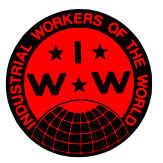
Stance on Syria: supports YPG/SDF. Views the PYD’s libertarian socialist ideology positively. Opposes the Turkish intervention; at least two IWW foreign volunteers in Syria have been killed in Turkish airstrikes (it is unclear if they were combatants or aid workers). Sources:
https://iww.org.uk/news/iww-statement-on-turkeys-invasion-of-northern-syria/ (2019)
Background information: an international labor union formed in the US in 1905. It was more radical than most existing unions and often faced harsh repression by anti-communist authorities. The hayday of the “Wobblies”, as they are known, was in the 1910s and 20s; though membership has declined since then, they are still one of the larger groups on this list in terms of both membership and area of operations. The IWW’s ideology is hard to pinpoint, but it is usually acknowledged as very close to anarcho-syndicalism, so I am listing them in this section.

Stance on Syria: there doesn’t seem to be a single, unified stance on Syria. Most articles are generally critically supportive of the YPG and (to a lesser degree) the opposition. Sources:
http://www.blackrosefed.org/on-interventions-and-the-syrian-revolution/ (2013)
http://www.anarkismo.net/article/29122 (2016)
Background information: a loose platformist network based around a website created in 2005. “Platformism” is a trend within anarcho-communism and anarcho-syndicalism that promotes the organizational philosophies of Nestor Makhno and other Ukrainian and Russian anarchists who led the ultimately-defeated Free Territory in Ukraine during the Russian civil war. Many of Anarkismo’s unofficial “affiliates” were part of the now-defunct International Libertarian Solidarity. Leading “affiliate” is the General Confederation of Labour in Spain, which split from the CNT (see International Workers Association) in 1979 over how to approach the Spanish transition to democracy. Two American “affiliates”: Black Rose Anarchist Federation and Humboldt Grassroots.
Others

Stance on Syria: critically to strongly supportive of government, depending on individual member party. All or nearly all describe the war as a Western imperialist intervention. Sources:
http://www.solidnet.org/search?ordering=&searchphrase=all&searchword=syria (various articles)
Background information: an international based around an annual conference first established by the Communist Party of Greece in 1998. Its members are the “official” Communist Parties – usually, but not always, those which were pro-Soviet. Leninists, Stalinists, Maoists, and Hoxhaists are all represented. Leading parties include the Communist Party of the Russian Federation, the Communist Parties ruling China, Laos, Vietnam, and Cuba, the Workers’ Party of Korea (which has officially abandoned Marxism and Leninism but retains ties to the world’s communist parties), and countless others. Among these are the Syrian Communist Party (Bakdash), which is Stalinist, and the Syrian Communist Party (Unified), which is Leninist; both are members of the Ba’ath-led National Progressive Front. American section is the CPUSA, listed earlier.
- International Communist Seminar (ICS) (defunct)
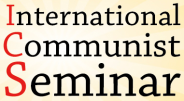
Stance on Syria: vaguely supported government. Called opposition “terrorists” funded by reactionary imperialists. Apparently, one of the more strongly pro-Assad parties, the Communist Party of Great Britain (Marxist-Leninist), tried unsuccessfully to include an explicit mention of “the Baathist regime led by Bashar al-Assad” in a 2013 declaration on Syria. Sources:
Background information: a loose international based around an annual conference hosted by the Workers’ Party of Belgium, first organized in 1996. Members were mostly anti-revisionist (e.g., Stalinist, Maoist, and Hoxhaist), with some sympathetic Leninists, including some of the “official” Communist Parties, meaning that the ICS overlaps with the International Meeting of Communist and Workers’ Parties. The ICS’ faded away after its last conference in 2014. The WPB seems to have abandoned anti-revisionism in favor of Eurocommunism (see CPUSA entry). The Syrian Communist Party (Bakdash) was a regular attendant. American parties that regularly attended include the Freedom Road Socialist Organization (Maoist faction) and Revolutionary Organization of Labor. The Workers World Party and the Party for Socialism and Liberation attended occasionally or were invited but did not attend.

Stance on Syria: supports YPG. Very critical of both government and opposition. “We declare ourselves against the two imperialist blocks: if there’s an [American] intervention in Syria we will be opposed to it, but we will not support the wave that eulogizes Russia just because of mere folklore, because they are just as imperialist as the Americans.” Dismisses reports of the Rojava government oppressing or expelling non-Kurds. Sources:
http://www.icor.info/2013-1/about-the-situation-in-syria-support-the-syrian-and-kurdish-people (2013)
http://www.icor.info/2016/closing-statement-of-the-2nd-conference-middle-east (2016)
Background information: an anti-revisionist international founded in 2010. Mostly made up of Maoist parties, with some Stalinists, Hoxhaists, and Leninists. Leading parties include the Marxist-Leninist Communist Party in Turkey, the Marxist-Leninist Party of Germany, and the Provisional Central Committee of the Communist Party of India (Marxist–Leninist). American section is the Revolutionary Organization of Labor (listed in the Hoxhaists and Stalinists section).

Stance on Syria: critically supports opposition and YPG. “[The war can only end] if there’s a major change in the position of the Syrian regime. The minimum that might be seen by the opposition as the basis of agreement would be a transitional government, with Bashar al-Assad stepping down — any transitional set-up that would be presided over by Assad would be a non-starter.” “Russia’s deadly raids and the intervention of Iran, Hezbollah, and sectarian Iraqi militias champion this profoundly reactionary, anti-democratic project [the Assad regime].” “Syria’s popular classes have suffered tremendously from destruction and deaths since 2011, while progressive and democratic forces within the popular movement have been violently repressed by the regime’s forces on one side, and jihadist and Islamic fundamentalist movements on the other. The most important issue today is the end of the war. This is not in contradiction with reaffirming our opposition to the Assad regime, to refuse its re-legitimisation internationally — not to forget the war crimes, the tens of thousands of political prisoners still tortured in the regime’s jails, the disappeared, the refugees, and the internally displaced, etc.” “Despite the PYD’s own authoritarian practices and mainly top-down rule in its managed areas, its experience has been hailed for the high inclusion and participation of women in all sectors of society, the secularization of laws and institutions, and to some extent the integration and participation of various ethnic and religious minorities… Progressives should oppose the bombing and threats by the regime’s military offensives assisted by its foreign allies against Idlib and the Eastern region, in which millions of displaced civilians have taken refuge.” Sources:
http://www.solidarity-us.org/site/node/4642 (2016)
http://www.solidarity-us.org/site/internationalstatementsyriairaq (2015)
https://solidarity-us.org/atc/196/syrias-disaster/ (2018)
https://solidarity-us.org/atc/192/p5176/ (2018)
Background information: a multi-tendency leftist group in the US. It was the result of a merger of three Trotskyist groups in 1986, one of which was the same group from which the International Socialist Organization had split. It maintains loose links with the United Secretariat of the Fourth International.
- World Socialist Movement (WSM)
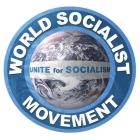
Stance on Syria: neutral. Says 2011 protests arose mainly the economic inequality of “crony capitalism.” “For the Syrian working class the best likely outcome in present circumstances from an ending of the civil war is a bourgeois capitalist liberal democracy and at worst an Islamic fundamentalist reactionary theocracy. Any group replacing the Assad regime will have to continue to run Syrian capitalism for the benefit of the Syrian capitalist class.” “No matter what the wishes or intentions or, no matter how sincere the participants are, eventually the logic and demands of the capitalist state system will prevail. Rojava, trapped within a spider web of competing Great Powers and local powers, either faced extinction or acceded to this logic and took its own place as a junior partner to one or other of the great military powers… Nationalism, however it justifies itself ideologically, will always be first and foremost a movement for the establishment and defence of a nation within a capitalist world system; Rojava’s principles would always take a second place to this.” Sources:
https://www.worldsocialism.org/wsm/rojava-the-end-of-the-kurdish-dream/ (2019)
Background information: an “Impossibilist” Marxist international founded in 1904. Impossibilism is particularly critical of the value of social and economic reforms, arguing that such reforms actually strengthen capitalism and should therefore be avoided. It also rejects Lenin’s concept of the vanguard party and democratic centralism. Leading party is the Socialist Party of Great Britain. American section is the World Socialist Party of the United States.
- News & Letters Committees (N&LC)
![]()
Stance on Syria: supports opposition. Supports establishing a no-fly zone. Critical of PYD/YPG’s ambiguous relations with Assad and “unprincipled attacks” on FSA. Sources:
http://newsandletters.org/save-aleppo-may-day-solidarity-with-free-syrians/ (2016)
http://www.solidarity-us.org/site/internationalstatementsyriairaq (2015)
Background information: a Marxist Humanist organization in the US founded in 1955. Originally Trotskyists, its members, led by Raya Dunayevskaya, combined a focus on Marx’s philosophical works with the ethics- and rationalist-focused philosophy of humanism. Dunayevskaya had sided with Shachtman in the 1940 split in the Trotskyist movement and ended up agreeing with Tony Cliff (see International Socialist Tendency) that the USSR was state capitalist.
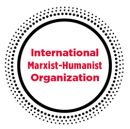
Stance on Syria: critically supports opposition and YPG. Says West is content with handing “a victory to the murderous Assad regime over its internal opponents, more than 200,000 of whom it has slaughtered, and some of whom remain true to the emancipatory ideals of the 2011 uprising.” Sources:
https://newsandletters.org/world-in-view-july-august-2020-syrias-problem-is-assad-not-sanctions/ (2020)
Background information: a small Marxist Humanist international. It was founded in 2010 by the US Marxist Humanists, which was one half of a 2007-2008 split from News & Letters over alleged cliquish leadership and degenerating activity.
- Marxist-Humanist Initiative (MHI)

Stance on Syria: unclear. Condemns Assad’s crime but also condemns foreign involement in the war. Calls for de-escalation. Sources:
Background information: the other half of the 2007-2008 split from News & Letters. It criticizes the IMHO, with which it briefly united and then separated from again, of repeating the same errors of N&LC. The IMHO views the MHI similarly.

Stance on Syria: supports government. Says “Syria is being ravaged by a civil war deliberately promoted by Western powers to destabilize the country and prepare it for regime change. The rebels do not speak for the majority of the population.” Sources:
http://forodesaopaulo.org/final-declaration-of-the-21th-meeting-of-the-sao-paulo-forum/ (2015)
Background information: a loose network of Latin American leftist parties founded in 1990. Member parties range from center-left social democrats to the far-left Communist Party of Cuba. Besides the CPC, leading members include the Workers’ Party of Brazil, the Movement for Socialism in Bolivia, the Farabundo Martí National Liberation Front in El Salvador, and the United Socialist Party of Venezuela (the party of the late Hugo Chavez). Three American affiliates, all in Puerto Rico: the Puerto Rican Nationalist Party, the Socialist Front, and the Hostosian National Independence Movement.
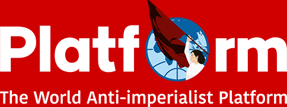
Stance on Syria: supports government. Condemns Western aggression against the “legitimate government of Syria”. Praises “anti-imperialist” alliance of Syria, Iran, Russia, Venezuela, and others.
Background information: formed in 2022; mostly consists of Leninists, Stalinists/Hoxhaists, and Maoists. Sees Russia and China, as well as allies like Iran, Venezuela, and North Korea, as anti-imperialist bulwarks against Western hegemony. Leading parties include the Russian Communist Workers’ Party, Communist Party of Great Britain (Marxist-Leninist), United Socialist Party of Venezuela, and the Chilean Communist Party (Proletarian Action). Two American sections: the Party of Communists, USA and the Center for Political Innovation.

Stance on Syria: supports government. Blames rebels for chemical weapons attacks and condemns the West for supporting them.
Background information: a small, loose international formed in 2012. Promotes a Marxist form of “democratic socialism” that looks to post-Mao China as its guide, with particular praise directed at China’s economy. Very supportive, though not completely uncritical, of the Chinese government. No clear leading party and no American section.
I had no idea that there were this many leftist political groups. Their varied opinions of the conflicts in Syria seem to have evolved over time, not surprisingly. It really is a mess there.
LikeLike
Indeed. A mess in every sense of the word.
LikeLike
Excellent job. Very useful. Thanks so much!
LikeLiked by 1 person
Thanks! Glad you liked it.
LikeLike
What about Socialist Alternative?
LikeLike
I’m assuming you mean the US Socialist Alternative. It’s mentioned in the Committee for a Workers’ International entry, although I’ve been told by a SocAlt member that the stance described there is not exactly accurate.
LikeLike
wow great work!
LikeLiked by 1 person
Thanks!
LikeLike
I think you left out the IWW.
LikeLike
I left it out because a quick search of their website yielded only a single passing reference to the war. I probably could have been more thorough though.
LikeLike
The IWW is neutral on this mess, though we’ve taken no official position, other than what’s in our Preamble. If *anyone* can sort out exactly WTF is going on in this clusterfuck beyond competing capitalist imperialist factions doubling down on supporting the proxy armies opposing their competitors’ proxy armies, ideology be damned, THEN maybe we’ll talk! (I’m not speaking in an official capacity BTW).
LikeLiked by 1 person
Thanks for the clarification!
LikeLike
Really, the IWW rarely takes positions on things like wars. And when it does, it even more rarely holds its members to defending those positions.
In the case of Syria, there’s Wobblies who support all sides, short of Da’esh. A small portion supports the government, a larger portion the opposition, and the largest portion taking a partisan stance with the Kurds.
At least two members of the IWW in the US have gone to Syria and died. The first in 2011 with the opposition in the early months of the civil war, the second died just last month from a Turkish airstrike against a Kurdish controlled town.
LikeLiked by 1 person
Oh wow, that’s really interesting. I’ll have to research that. Thanks!
LikeLike
I guess the Green Party doesn’t count as “left”?
LikeLike
Yeah, I didn’t include democratic socialists or social democrats.
LikeLiked by 2 people
Under ‘International Communist Seminar’ you mention the CPGB, but there are multiple groups with that name. You are referring to the CPGB (ML).
LikeLike
Good catch, thanks!
LikeLike
You should include the RCG (UK)
LikeLike
Reblogged this on Socialist Fight and commented:
Useful information although Michael Pröbsting will be alarmed and Laurence Humphries will be pleased to learn that the leading section of the RCIT is in the UK. Well done Laurence!
.
LikeLike
Try also EPSR
LikeLike
I’m not trying to be snarky, just curious- how many of these groups have more than twenty members?
LikeLike
Not sure; I would guess most of them do have more than twenty members – but a lot of them probably have less than 100 members. The smallest ones would probably be ROL, LRNA, CVO, SWO, and Revolutionary Regroupment – I wouldn’t at all be surprised if these groups had less than 20.
LikeLike
Revolutionary Regroupment has some militants in Brazil
LikeLike
Oh wow, very interesting, thanks!
LikeLike
This is an on point and well-considered discussion on this subject. It is appreciated for its rarity and accuracy, as far as this reader has observed. As one who researches and reports on the Syrian conflict and the advances of the PYD, SDF (of course, including YPG/J) and TEV-DEM in the Federation of Northern Syria, daily, I use this list to help discuss the matter with socialist friends, with great confidence, based on what I’ve seen here compared to what I’ve read from known groups.
LikeLike
Wow, high praise indeed. Thanks! And glad I could help.
LikeLike
The AWL is more pro-opposition and pro-YPG than you suggest. Signed articles in the paper do jot necessarily reflect the agreed position of the organisation. See here:
http://www.workersliberty.org/story/2017-10-12/daesh-driven-out-raqqa
LikeLike
Thanks for the insight!
LikeLike
http://www.revolutionarycommunist.org/
This group in Britain would strong support Syria govt against imperialism
LikeLike
Thanks for the link, I’ll check them out.
LikeLike
Another take on those pro imperialist left groups who falsely claim the name of Trotskyism:
LikeLike
Good job but you need to do more research on left communism. Left communists weren’t initially “critics of both the mensheviks and bolsheviks”. They were actually bolsheviks or – outside of Russia – supporters of the Bolsheviks, who were later expelled or split from the Bolshevik party.
Also, left communists in general don’t defend a “highly descentralized socialist government”. In fact, the Bordigists defend a highly centralized communist party as “the brains of the working class” during the period of transition. And even non Bordigists like the ICC and the ICT defend centralized planning.
And finally, Bordiga never ever criticized anything for being “authoritarian”, specially the USSR under Lenin. He did criticize certain policies on a class basis and did criticize Stalin’s Russia as capitalist, not as “authoritarian”. Actually Bordiga was in the “official” Communist Party of Italy until 1930, well after Lenin died.
What defines left communism as far as positions go has much more to do with thins like participation in bourgeois politics, supporting ellections, not believing in national liberation or any other kind of interclass politics. Most of all intransigent internationalism, which means never supporting bourgeois wars of any kind.
LikeLike
Thanks for the feedback. Yeah, I’ve been struggling to understand left communism. I’ve been thinking it’s a form of libertarian communism all this time, so it’s difficult for me to recategorize them in my mind.
LikeLike
Revolutionary Regroupment is not defunct. It is still active on this site https://rr4i.milharal.org/. Their statement on what happened to their old site is here https://rr4i.milharal.org/2015/11/19/statement-on-sam-trachtenberg/. They remain based in Brazil and are now also in political solidarity with Bolshevik-Leninist of Australia http://bolshevik-leninist.org/
LikeLike
Thanks for the correction, I will adjust the article soon!
LikeLike
The follow are of the Bol EA(South Korean split from the IBT)
http://bolky.jinbo.net/index.php?mid=board_ArAZ48&document_srl=8387
http://bolky.jinbo.net/index.php?_filter=search&mid=board_ArAZ48&search_keyword=syria&search_target=title_content&document_srl=8416
http://bolky.jinbo.net/index.php?_filter=search&mid=board_ArAZ48&search_keyword=syria&search_target=title_content&document_srl=6588
“In our study on the question we have found that the IBT and the iSt tradition have much too frequently taken that kind of neutralism in cases of imperialist aggression against colonies of the US. Besides Tom et al’s argument on Egypt and Turkey, neutralism on the maneuvers to change the disobedient colonial regimes by imperialism in Libya, Ukraine and Syria are recent examples. Defining actions against regimes when the imperialists are acting through domestic forces as merely civil war, and taking the side of the targeted regimes only when the imperialists are involved directly in combat is not revolutionary. This is at best humanist but it abandons Leninism on the national question. That position wastes critical time, failing to take practical measures to defend the victim of imperialist aggression at the outset, while making claims to be anti-imperialist. It takes the side of the imperialists’ target at a time when support is useless. And it pretends to be anti-imperialist. Perhaps that might be better than the IS’s position which describes the imperialist proxy forces as “revolutionary”, but practically it is also in the service of imperialism.”
LikeLike
Hi. I can’t overstate the merit and value of the work you have done. Thank you so much for all this effort. I’m wondering if there is any chance that you would want to do the same thing for the position of the left on the war in Ukraine? Cheers.
LikeLike
Hello! Sorry for the late reply. Thanks so much for the positive feedback. And as a matter of fact, I have been looking into writing something up on Ukraine, but at my pace it’s going to be quite a while.
LikeLike
Hear, hear.
LikeLike